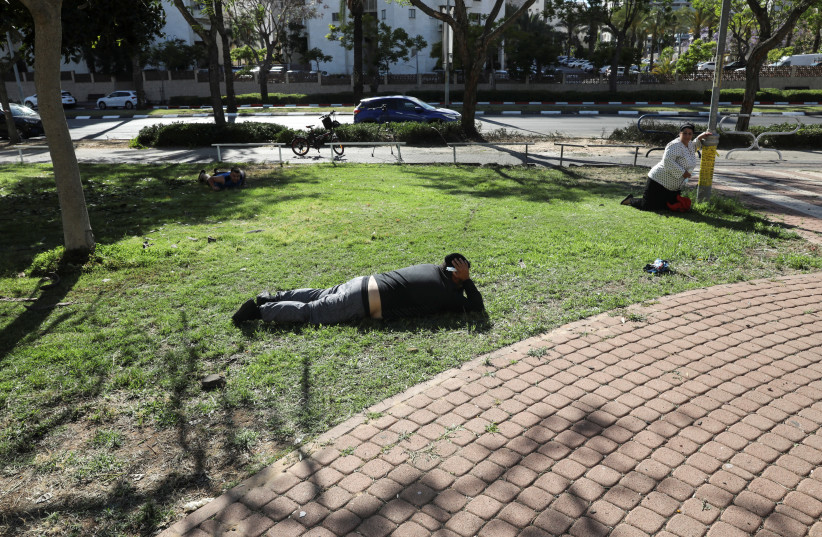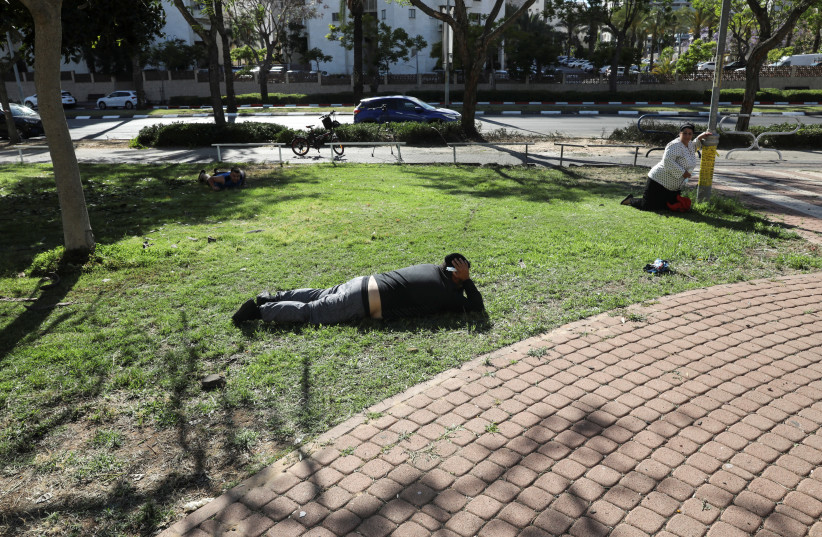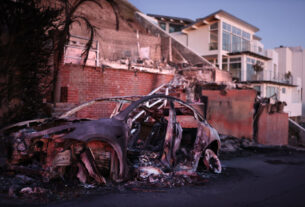
As sirens keep on going off and rockets pound Israel, the most crucial question for many parents is how to keep their children safe, first and foremost physically, but also emotionally.Two experts spoke with The Jerusalem Post about the problem, highlighting how allowing space for children’s fears and questions, as well as explaining to them the rules to stay safe, are of crucial importance.“In normal situations, children can overcome situations of fear and anxiety,” said Dr. Danny Lotan, director of the Anxiety Disorders Clinic at Schneider Children’s Medical Center for Israel in Petah Tikva and a clinical psychologist. “Usually, after the traumatic events are over, their mental health returns to a normal state.“However, there are situations where the stress is too overwhelming, and it leaves some traces. Children exposed to bombing, parents crying or panicking or similar things can definitely be considered among these situations and sometimes cause what we call post-traumatic stress disorder.”According to Dr. Gilad Bodenheimer, head of Mental Health at Maccabi Healthcare Services and a child psychiatrist, it is important to make a distinction between the immediate aftermath of a traumatic event, the first few weeks afterward and what happens later.“In the first 24 to 48 hours after an event, any form of reaction can be considered normal,” he said. “After one or two days, we expect to start to see an improvement. After the first month, we can consider possible complications a pathology.”What can parents do to minimize the impact of rocket attacks on their children?
if(window.location.pathname.indexOf(“656089”) != -1){console.log(“hedva connatix”);document.getElementsByClassName(“divConnatix”)[0].style.display =”none”;}“When a child hears a siren, this represents a traumatic even,” Bodenheimer said. “In order to decrease its impact, parents can work on shortening the time when the child feels he or she is losing control. Losing control and helplessness are the essence of trauma.”For this purpose, explaining what is happening and having clear rules on how to behave are crucial.“It’s important that the child is aware that a siren is there to protect us, and it is not the missile itself, but rather, it gives people time to run to a safe room,” Bodenheimer said. “This allows us to reframe the context and move it to a place of control and safety.”Both experts emphasized that parents should not be scared of their children’s reactions, even if they are very strong.“It is normal for children to react, and parents should not be afraid of them,” Lotan said. “If parents manage to remain calm, it also helps. Calm does not mean not to be scared, but rather, not to panic.”“My second recommendation it to make sure that the children basic needs are fulfilled,” Bodenheimer said. “They need to eat, sleep and so on because this also gives them a sense of security and stability. Allowing them to live a normal life as much as possible is also important because it helps them feeling in control.”Speaking to children about the situation and allowing them to ask questions is also considered crucial.“It is very important to talk to the children – because no matter what, they are going to hear things – and to talk to them in a language that they can understand,” Bodenheimer said. “If they just watch the news, they might not fully comprehend what they see, and this can increase the traumatic experience.”“Children should be allowed to express themselves and to ask questions, even when they are scary and we do not have answers,” Lotan said.As time goes by, if symptoms such as not eating, or sleeping or general lack of functioning persist, parents should look for professional help.“Mothers and fathers should also remember that these are difficult times for them as well,” Lotan said. “They do not have to be Superman.”




